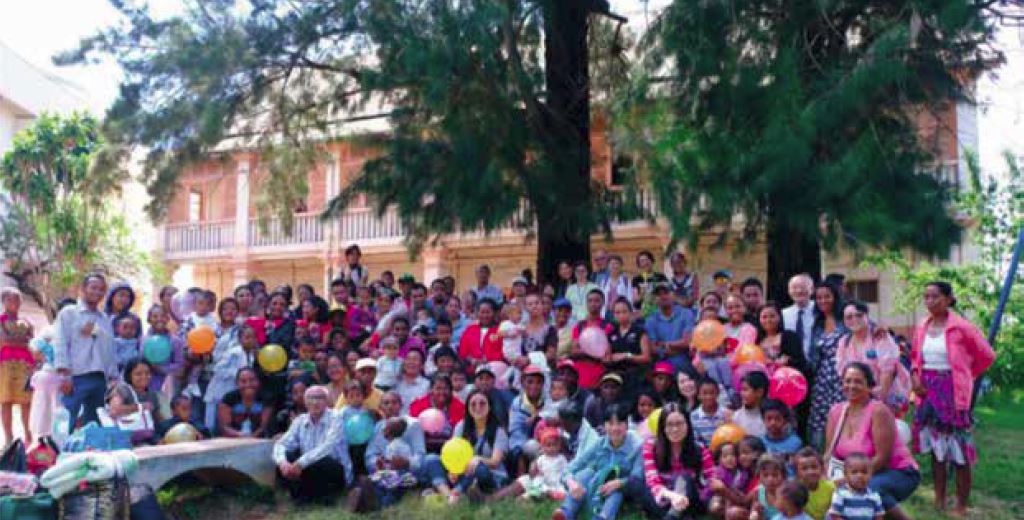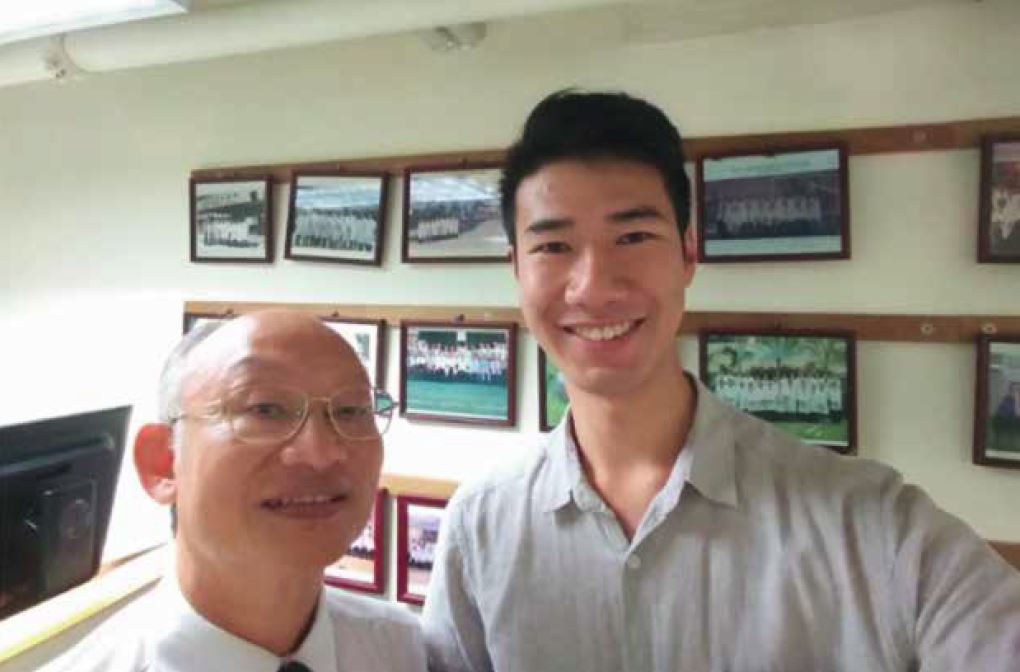© Hong Kong Academy of Medicine. CC BY-NC-ND 4.0
HEALTHCARE FOR SOCIETY
World volunteer and carer for bones and minds: an
interview with Dr Chi-wai Chan
Ricky Yau1; Nicole Lau2
1 Year 3, The Chinese University of Hong
Kong
2 Year 2, The Chinese University of Hong
Kong
One afternoon in October 2019, Dr Chi-wai Chan
returned to the United Christian Hospital, where he was the former Chief
of Service in the Department of Orthopaedics and Traumatology, to share
his experience of volunteering around the globe. Now working part-time, he
looked back on his career as a doctor and carer for all those in pain and
agony.
In 1996, Dr Chan began his service in mainland
China. Although he had acquired a relatively comfortable life in Hong
Kong, he wanted to go to the mainland and help fellow Chinese people—the
roots are the same despite differences. As a long-time Christian, he was
also motivated by the values of love and sharing, which led
him to his starting point, Henan, where there had been a flood in 1991.
Since then, he has visited more of mainland China, Kenya, Africa,
Madagascar, Iraq, and many other places.
On some of his travels, Dr Chan was able to treat
patients with his professional skills; on others he had more time to
connect and communicate with the local people. Natural disasters and wars
result in prevalent bone fractures, and Dr Chan’s specialism in
orthopaedics and traumatology is invaluable in such situations. He was a
volunteer that provided assistance immediately after the 2008 Sichuan
earthquake. At a town a couple of hours away from the centre of Sichuan
Province, where the hospital had been demolished by the shaking, he
encountered a person with a bone fracture. Usually, X-ray examination is
needed to precisely locate the site of the injury, but his search for
working equipment was in vain. Amidst these difficult circumstances, Dr
Chan, relying only on his expertise and keen senses, set the fractured
bones. Dr Chan also witnessed first-hand shortages of resources in some
less-developed regions or destroyed sites. In one surgical scene, he saw
blood-soaked gauze being washed and reapplied to the wound of the patient
on the operating table. These nerve-wrecking stories were real challenges
for Dr Chan that one can only imagine and hope they turned out well.
Among his many trips to Sichuan after the
earthquake, the first trip involved a great deal of providing spiritual
support, Dr Chan recalls. Six days after the disaster, the most severely
injured had already been taken by ambulances to hospitals in other major
cities or provinces, so there was not much to do as a doctor. Therefore,
Dr Chan took up the role of an educator, teaching children there how to
count to one hundred in English. He also communicated with the villagers
there—their lifestyle was free and tailor-made for whatever they needed on
the field.
Despite his utmost efforts, Dr Chan still felt
helplessness in some situations, such as dealing with the sorrow of the
survivors. He particularly remembers that one 6-year-old wrote ‘I want to
see my brother,’ on a wish-making balloon. Sadly, it was already 2 weeks
after the earthquake, and impossible for the child to realise that wish.
Having been retired for almost 3 years, Dr Chan has
witnessed some of his old classmates enjoying fame and fortune.
Nonetheless, his belief that money cannot buy true happiness has never
been shattered. The Christian proverb ‘it is more blessed to give than to
receive’ is imprinted on his heart, and he deeply believes that this is
the only way to live a happy and contented life. If he had the chance to
choose his path of life again, he says he would live the same life again
with no regrets. With thrill and excitement on his face, Dr Chan was eager
to share pictures of patients he revisited years after he had performed
surgery on in Luoyang. In 1997, Dr Chan was heartbroken when he saw a
9-year-old girl with polio crawling across the floor like an animal owing
to her weak lower limbs and back. Despite not being able to completely
cure the disease, he greatly improved her ability to stand and walk by
operating to straighten the hips and knees and then giving her braces.
When Dr Chan revisited her almost 20 years later, she was able to work,
get married and take care of herself and her children. She had regained
independence and more importantly, she could finally live like a dignified
human being with a spouse and family. Dr Chan and his team received a very
warm welcome from her family with every moment of their meeting filled
with immense gratitude. There is nothing more enjoyable for Dr Chan to see
how a surgery completely changes the life of a person and even the fate of
a family.
Despite having travelled for almost a hundred
missions, Dr Chan has no plans to stop. His next destination is Niger in
December 2019. He wishes to visit the more difficult and challenging
places while he is still physically capable of travelling. Having just
visited one of the most infamous war-torn places in the world, Iraq, he
also has plans for next year to visit Gabon, which is a severely deprived
country in Africa. These are places where few volunteers choose to go,
thus are with greater needs that Dr Chan wants to address. ‘If you are
willing to go to places where nobody else dares, your presence will make a
difference’, he said as he explained the reasons behind choosing the
countries or regions to serve.
Inside every doctor should bear a compassionate
heart. Inside every volunteer is an adventurous soul that wants to
understand and experience the adventures of other places and people. The
decision comes down the value one holds, treasures and believes in. Dr
Chan has both of those, making his determination to change the lives of
the underprivileged miles away from Hong Kong unstoppable.



